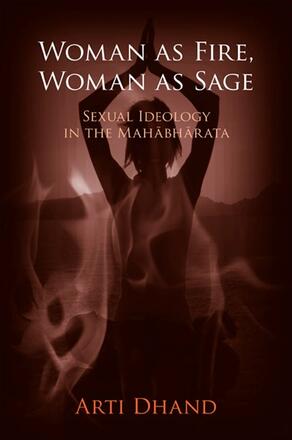
Woman as Fire, Woman as Sage
Sexual Ideology in the Mahābhārata
Alternative formats available from:
Explores ideas on women and sexuality presented in the great Hindu epic, the Mahabharata.
Description
The Hindu tradition has held conflicting views on womanhood from its earliest texts—holding women aloft as goddesses to be worshipped on the one hand and remaining deeply suspicious about women's sexuality on the other. In Woman as Fire, Woman as Sage, Arti Dhand examines the religious premises upon which Hindu ideas of sexuality and women are constructed. The work focuses on the great Hindu epic, the Mahābhārata, a text that not only reflects the cogitations of a momentous period in Hindu history, but also was critical in shaping the future of Hinduism. Dhand proposes that the epic's understanding of womanhood cannot be isolated from the broader religious questions that were debated at the time, and that the formation of a sexual ideology is one element in crafting a coherent religious framework for Hinduism.
Arti Dhand is Assistant Professor of Religion at the University of Toronto.
Reviews
"…an extensive and insightful exploration of women, gender, and sexual relations in the epic, examining these issues within the larger context of the religious ideologies of the text … an excellent book. " — History of Religions
"Dhand's overview of Mahabharata research is particularly valuable for covering the trend in Indian scholarship that is more interested in the inner meaning of the epic, stepping away from Western criteria to study the work in the Indian literary context. " —The Statesman
"Arti Dhand's work, with its focus on issues of gender and sexuality, is welcome and long overdue, and the energy, enthusiasm, and thoroughness of her effort is commendable … Her work fills a major lacuna in epic studies and provides an excellent base from which to further examine these and related concerns of gender in the early tradition of the Indian Subcontinent. " — Journal of Asian Studies
"Dhand has delved deeply into a text that, as she says, is written from the male perspective. It is refreshing to consider the information about women in ancient India that she has gleaned. I find her premise—highlighting the contrasting goals within pravrtti and nivrtti—to be brilliant. A work of this magnitude and eloquence makes a great contribution to Asian studies and women's studies. " — Constantina Rhodes Bailly, translator of Meditations on Shiva: The Shivastotravali of Utpaladeva
"This is an excellent book for anyone interested in the 'front lines' of the study of Hinduism and gender: easy to read, well organized, and a good introduction to the epic as a whole. Dhand represents a 'world' of women in all of its complexities. " — Laurie L. Patton, author of Bringing the Gods to Mind: Mantra and Ritual in Early Indian Sacrifice